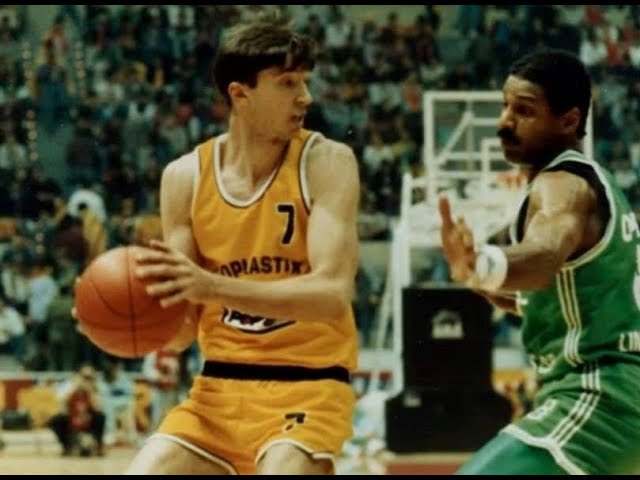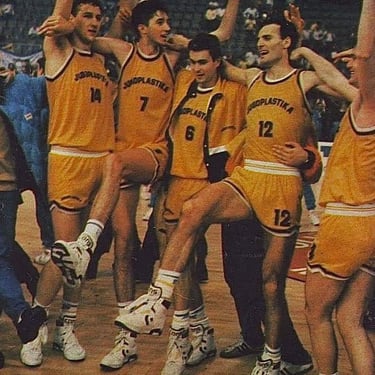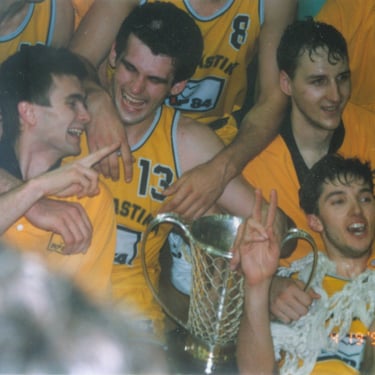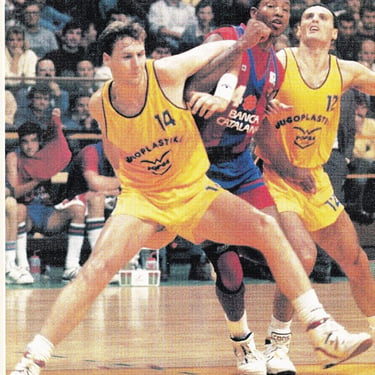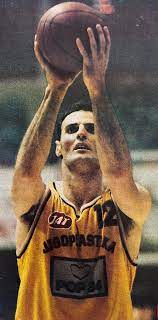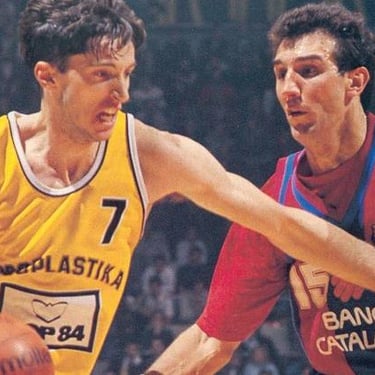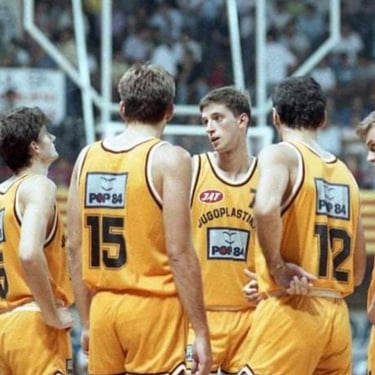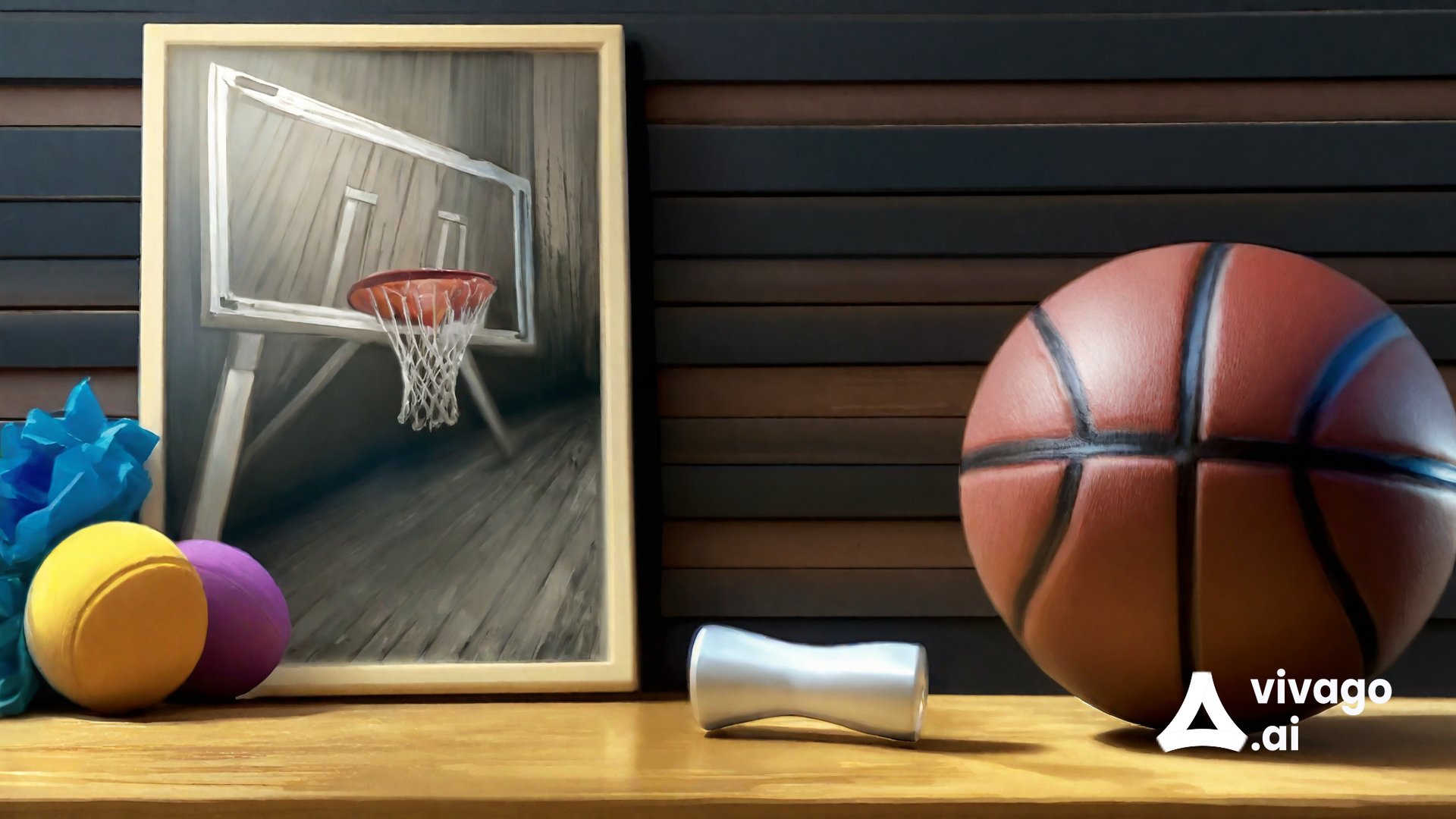
Final Four - Zaragoza 1990
"When boys became men"
RETROFFF (FINAL FOUR FOLKLORE)
Antreas Tsemperlidis
4/24/20253 min read
Zaragoza in 1990 was the time and place where boys became men, where it was proven that Munich wasn't just a one-off firework display. All of Europe’s top teams were eager to dethrone the Yugoslavs of Jugoplastika, and most believed that the yellow armada from Split wouldn’t be able to repeat their 1989 triumph in the Bavarian capital.
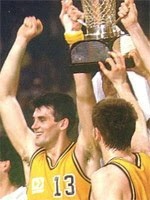

After an Easter egg piece -fastforwarded to 1996- Antreas continues the journey where we left off. Next stop Zaragoza, so relax and lets roll back the years once more. Here is how the F4 story continued to unfold...
But Maljković and his players believed otherwise—and that belief was enough. Boža kept the core squad intact: Kukoč, Rađa, Ivanović, Sretenović and in the summer of 1989, he brought in a 23-year-old big man from Bosnia’s second division. His name? Zoran Savić.
At the same time, the other contenders for a spot in the Final Four in Zaragoza were making their own roster moves, most notably Aris. The “Emperor,” in theory, strengthened their lineup by acquiring Stojan Vranković to replace Canadian Greg Wiltjer and adding American forward Mike Jones, who had played the 1988–89 season with PAOK in the Greek league. “The Deer’s Baby” was a brilliant player, capable of playing four positions, organizing, scoring, rebounding—a complete baller.
Barcelona, Jugoplastika, and Limoges were the other three teams to emerge from the Top 8 group and, along with Aris, booked their ticket to the capital of Aragón, from April 17 to 19, 1990.
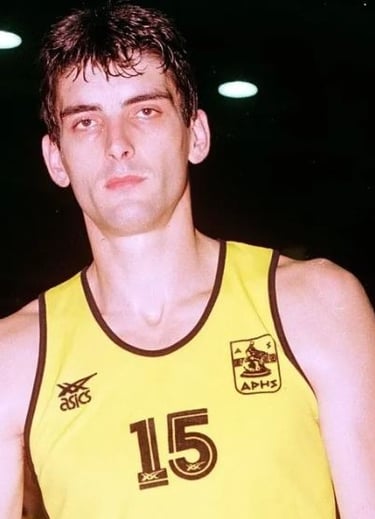

The heavy favorite was the Spanish side, Barcelona. A well-balanced team coached by Aíto García Reneses, they were known for their transition game and lightning-fast pace. That’s exactly what they unleashed in the semifinal against Aris, who couldn’t handle the Catalans’ blistering tempo. Aris fell into the trap of playing a high-pace/scoring game and eventually lost 104–83. The Greek champions were a team that could easily score 100 points with their perimeter trio (Galis, Giannakis, Jones), but could just as easily concede 110 and lose.
In the other semifinal, Jugoplastika toyed with Limoges. The French couldn’t cope with the futuristic basketball of Boža’s kids, led by no other than Kukoč. The holders did as they pleased on the court at the “Príncipe Felipe” arena and the convincing 101–83 victory was a warning bell to any ambitiohs challenger.
But apparently, the sound and virations didn’t ring all the way to Catalonia...
In the final, Maljković started with some mind games, keeping his star player on the bench. He subbed him in during the 11th minute and never took him out again for the remainder of the game. Rađa however quickly picked up three fouls, so Boža called on Zoran Savić from the bench and assigned him the job of dishing out some serious physical punishment to Audie Norris and wear him out.
And on offense? Well the man who earned the nickname “Pink Panther” at that Final Four -and made Chicago Bulls GM Jerry Krause, who was sitting in the stands, rub his hands together over the gem he had discovered- showcased his completeness as a player. Kukoč shifted roles on the fly (point guard on offense, power forward on defense) and delivered one of the greatest performances ever in a Champions Cup final, rightfully earning MVP honors.
Ivanović and Perasović each scored 12 points and shut down San Epifanio on defense. Rađa, despite limited minutes due to his early foul trouble, also contributed in various ways. Savić introduced himself in style to anyone who hadn’t yet grasped his immense value. And so it ended: 72–65, back-to-back titles and the continuation of European basketball’s most beautiful fairy tale.
Third place went to France’s Limoges, who beat a disheartened Aris 103–91. It was the swan song of the “Emperor” and a sign that the foundations were now shaky. For the first time, fans booed and in Zaragoza, Galis -who by the way dropped 43 points in the third-place game, a record still standing to this day- stormed off, furious at the jeers, and prophetically declared: “Aris is over for me.”
In the end, Zaragoza 1990 saw Europe bow once more to the team that embodied “total basketball”. A group forged by that rare metal from which true champions are made-of, patiently refined every day in the lab of Gripe Arena by Božidar Maljković.
